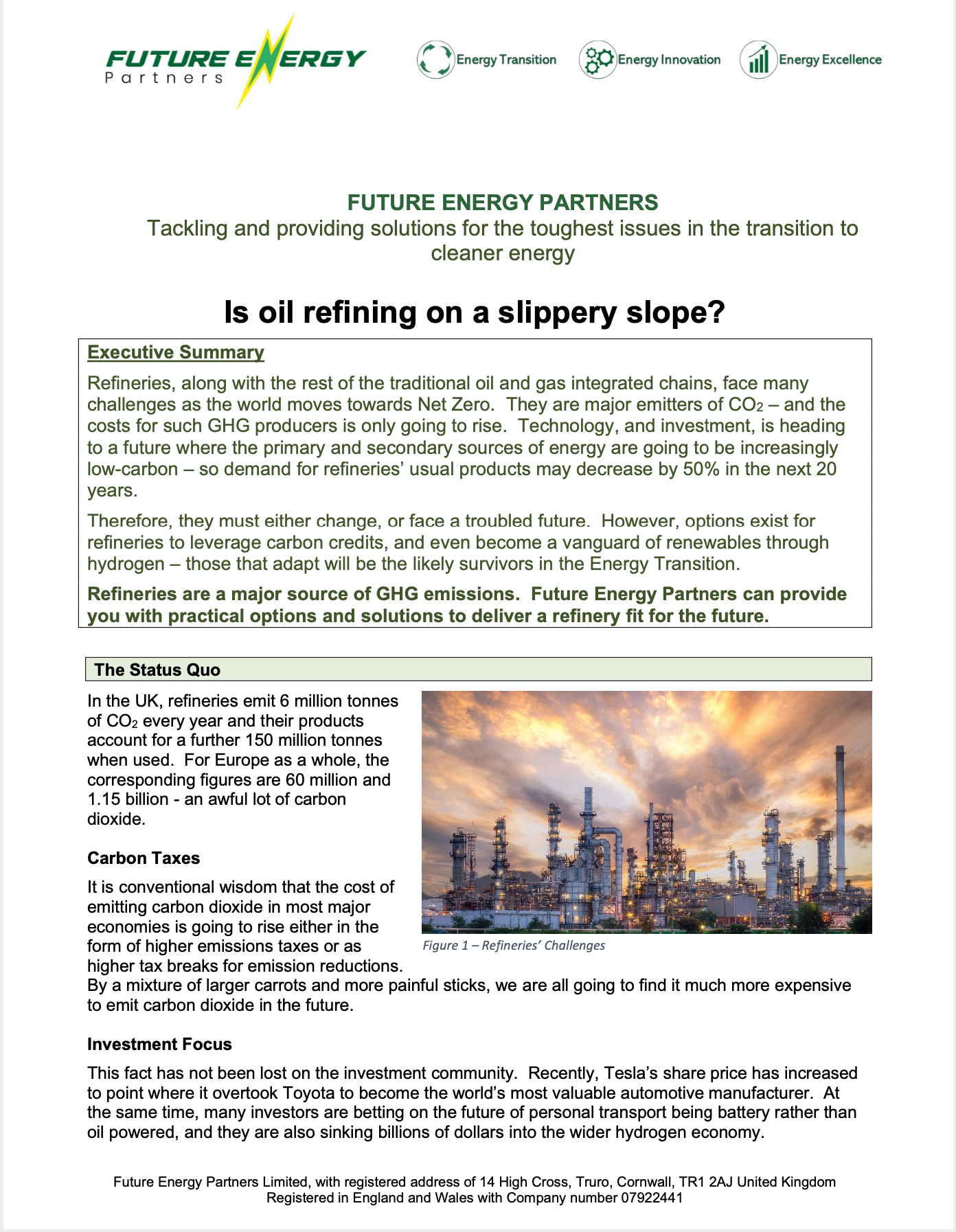Is Oil Refining on a Slippery Slope?
Refineries, along with the rest of the traditional oil and gas integrated chains, face many challenges as the world moves towards Net Zero. They are major emitters of CO2 – and the costs for such GHG producers is only going to rise. Technology, and investment, is heading to a future where the primary and secondary sources of energy are going to be increasingly low-carbon – so demand for refineries’ products may decrease by 50% in the next 20 years.
Therefore, they must either change, or face an uncertain future. However, options exist for refineries to leverage carbon credits, and even become a vanguard of renewables through hydrogen – those that adapt will be the likely survivors in the Energy Transition.
Refineries are a major source of GHG emissions. Future Energy Partners can provide you with practical options and solutions to deliver a refinery fit for the future.
Yes, I'd like to download this White Paper and receive your monthly newsletter
WHAT'S INSIDE?
THE STATUS QUO
In the UK, refineries emit 6 million tonnes of CO2 every year and their products account for a further 150 million tonnes when used.
THE CHALLENGE
Refinery product slates vary globally, however approximately over 80% (EIA, 2020) of the product is used for transportation (gasoline, distillates and jet fuel) and heating.
REFINERIES OPTIONS
Leveraging carbon credits, joining the hydrogen economy and leveraging partnerships.

